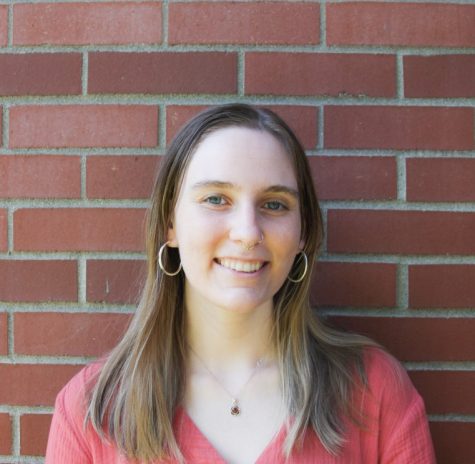Communication in student relationships has evolved during COVID-19
SPU students have had to adapt their communication styles during pandemic
January 28, 2021

As communication dynamics in relationships continue to change, some students have found that their relationships have strengthened as a result of the impact of the pandemic.
Troy Vigil, third-year student, says that the lockdown and the inability to go out frequently has allowed him and his girlfriend Kilee to grow as a couple through their changes in communication with one another.
“Because of the pandemic, our relationship has definitely evolved. Spending so much time together, we’ve learned how to talk to one another efficiently, and getting to know each other’s strengths and weaknesses very well,” Vigil said when asked how communication in his relationship has changed.
Vigil said that due to the lockdown and inability to go out on date nights, they have been forced to be more creative with how they spend time together.
“Some of these include movie night, dinner night, where we cook for one another, or sometimes going for a late night drive to get our favorite boba or guilty foods while singing in the car.”
When asked about what advice he had for other students in relationships, Vigil said, “Communicating with your significant other is really more simple than it seems. If you want your significant other to do something or don’t like something they’re doing, communication is key.”
Vigil credits the lockdowns for allowing him and his girlfriend to spend more time together and to be able to talk about anything.
“Kilee and I have great communication skills that really help out our relationship. She lacks in areas where I flourish and vice-versa and that is one of the many reasons why she’s my person,” Vigil said.

Quinn Laulainen, third-year student, and her boyfriend live in separate dorms on-campus. They have found that communicating through Facetime and texting has been the best way to talk when apart.
Laulainen explained how her and her partner had to get creative when it came to spending time together.
“I ended up being in the first two week quarantine on campus which made things hard, because we had our routine of grabbing Gwinn together or going on walks on the canal everyday,” Laulainen said. “He ended up sending me letters and little gifts while I waited to be released from quarantine, which was super sweet and made things a lot easier.”
Laulainen and her significant other realized that it was difficult at first to express emotions over text, but said they were able to find solutions to those challenges and had some advice to offer to students.
“Your partner can’t read your mind, especially through a screen. I think it is also important to explore each other’s love language to know how to love them best. Your love language is not always going to be the same as theirs, and it’s important to know how to make your partner feel appreciated and how they could make you feel the same,” said Laulainen.
Gianna Francisco, a senior majoring in interior design, met her boyfriend on Bumble just weeks prior to the pandemic.
“We got to know each other a lot faster than a typical relationship because we were forced to spend quality time together in a small space and enjoy small, everyday moments together,” Francisco explained.
With so much time to spend together, Francisco and her boyfriend started to go a little stir crazy which required them to work on communicating with one another when they needed some space from each other.
“We had to evaluate our personal boundaries and learn to tell each other what we needed in terms of alone time,” Francisco said.
Francisco encouraged couples to not dismiss the concerns they have in the relationship, but instead bring them to their partners attention.
“It is not an easy practice, but it is a great habit to adopt. As long as both partners are respectful and willing to listen to each other, it is possible to have a successful and productive conversation that can spark positive change,” Francisco said.

Cambria Judd Babbitt, third-year student, got married to her significant other in August.
As many realize in their first year of marriage, they both recognized that their communication needs included being vulnerable and upfront with one another in order to adapt to their different processing styles.
“We had to be way more open about our communication and upfront about how we were feeling with so much uncertainty in the world around us,” Judd Babbitt said. “My spouse is definitely more of an internal processor, and I am a more verbal processor… A big part of us deciding to get married was that our communication shifted and that we were able to adapt to it well.”
Judd Babbit recognized that her and her spouses’ upbringings when it comes to conflict management were vastly different from each other. While her family handles conflict more verbal and upfront, her spouse’s family is more quiet when it comes to conflict.
“It was really interesting actually, in terms of communication, learning how some of the reasons both of us communicate so differently is because of our families communication,” Judd Babbit said.
Judd Babbit said her and her husband found new ways to practice their communication such as question cards that gave them prompts to spark new discussions on a road trip they went on.
She also said being open and honest with one another is important.
“In doing that, talking to people that you trust outside of the relationship, whether it be trusted family members or friends, just getting input from those people in your life that you trust going to for advice really helps your relationship with the other person,” Judd Babbit described.

























































































